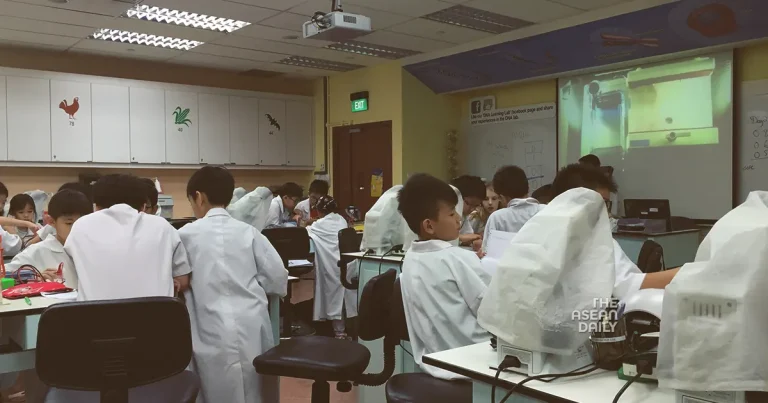6-12-2023 (SINGAPORE) Asian countries, spearheaded by Singapore, have taken the lead in a highly anticipated survey on education capabilities, while European nations have experienced a notable decline in performance, extending beyond the impacts of the ongoing pandemic.
Published on Tuesday by the Paris-based Organisation for Economic Cooperation and Development (OECD), the Programme for International Student Assessment (PISA) survey occurs every three years, evaluating the real-life problem-solving abilities of 15-year-olds.
Singapore emerged as the frontrunner in the 2022 assessment, surpassing 690,000 students across 81 participating countries and economies. The South-East Asian city-state secured the highest scores in all three areas of the survey: mathematics, reading, and science.
However, despite excelling academically, the report revealed that students in the top-performing countries were not necessarily happier.
“The PISA 2022 results show a fall in student performance that is unprecedented in PISA’s history,” remarked OECD education analyst Irene Hu during a press briefing.
Singapore’s remarkable performance indicated that its students were, on average, almost three to five years ahead of their global peers in terms of schooling, according to the report. Following Singapore in the mathematics category were other Asian education systems, including Macau, Taiwan, Hong Kong, Japan, and South Korea, which also scored impressively in reading and science.
While Asia demonstrated excellence, the report highlighted an overall “unprecedented drop in performance” globally, with notable declines in countries such as Germany, Iceland, the Netherlands, Norway, and Poland.
The report acknowledged that COVID-19-related disruptions affected education standards, but it emphasized that other factors contributed to the downturn. Students in previously high-achieving countries like Finland, Iceland, and Sweden had been consistently scoring lower marks for years, indicating systemic issues beyond the pandemic’s impact.
A crucial factor contributing to the decline was identified as “the level of support pupils received from teachers and school staff,” according to OECD’s Hu. Some education systems were criticized for inadequate resource allocation to support students, said Eric Charbonnier, another OECD education analyst.
Countries had invested in education over the past decade, but the quality of teaching may not have seen proportional improvement, Charbonnier suggested. Additionally, a decrease in parental involvement compared to 2018 was noted.
The drop in skills observed in 2022 equated to roughly a year’s worth of education in some cases. For instance, in mathematics, countries like Denmark, France, Greece, Portugal, and Sweden reported that the average 15-year-old in 2022 performed at the level expected of a 14-year-old in 2018.
Estonia emerged as the best European performer, while Germany and France ranked below Switzerland, Ireland, Belgium, and Britain. Charbonnier expressed concern about Germany’s decline, emphasizing that it surpassed France, while Norway and Finland also experienced more significant declines than France.
The U.S. education system showed minimal change from the previous survey, with students weaker in mathematics but slightly above average in reading and science.
OECD Secretary-General Mathias Cormann noted that the education landscape had undergone profound changes, not only due to the pandemic but also as a result of a deeper digital transformation in societies since the 2018 report.
For the first time, PISA examined students’ happiness, revealing that in top-performing countries like Singapore, Macao, and Taiwan, many students reported a high fear of failure and limited engagement in extracurricular activities. In contrast, countries with lower average PISA test scores, such as Spain and Peru, often had lower levels of anxiety and a greater focus on sports.




